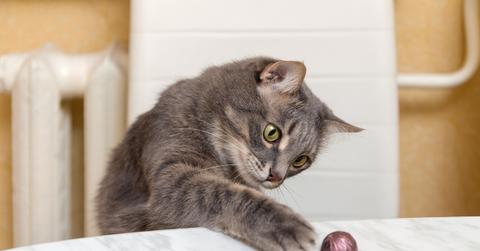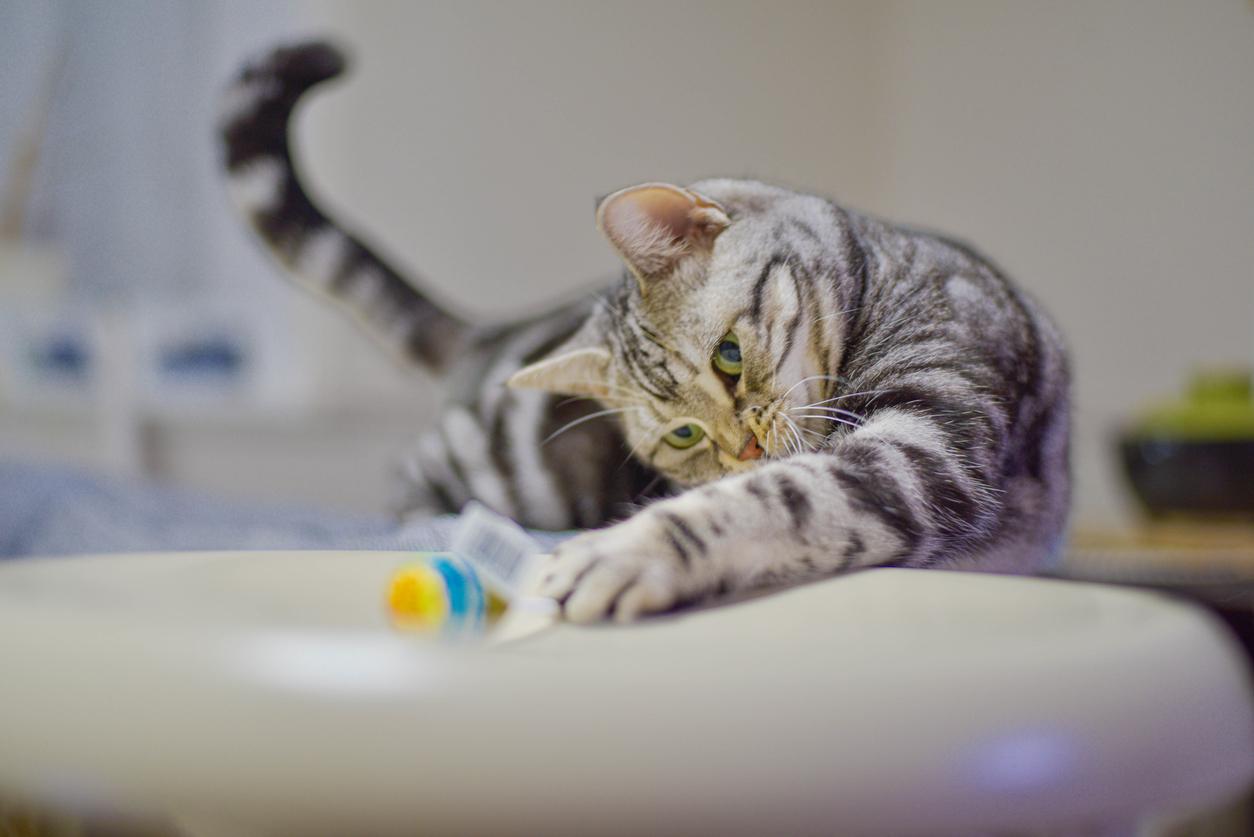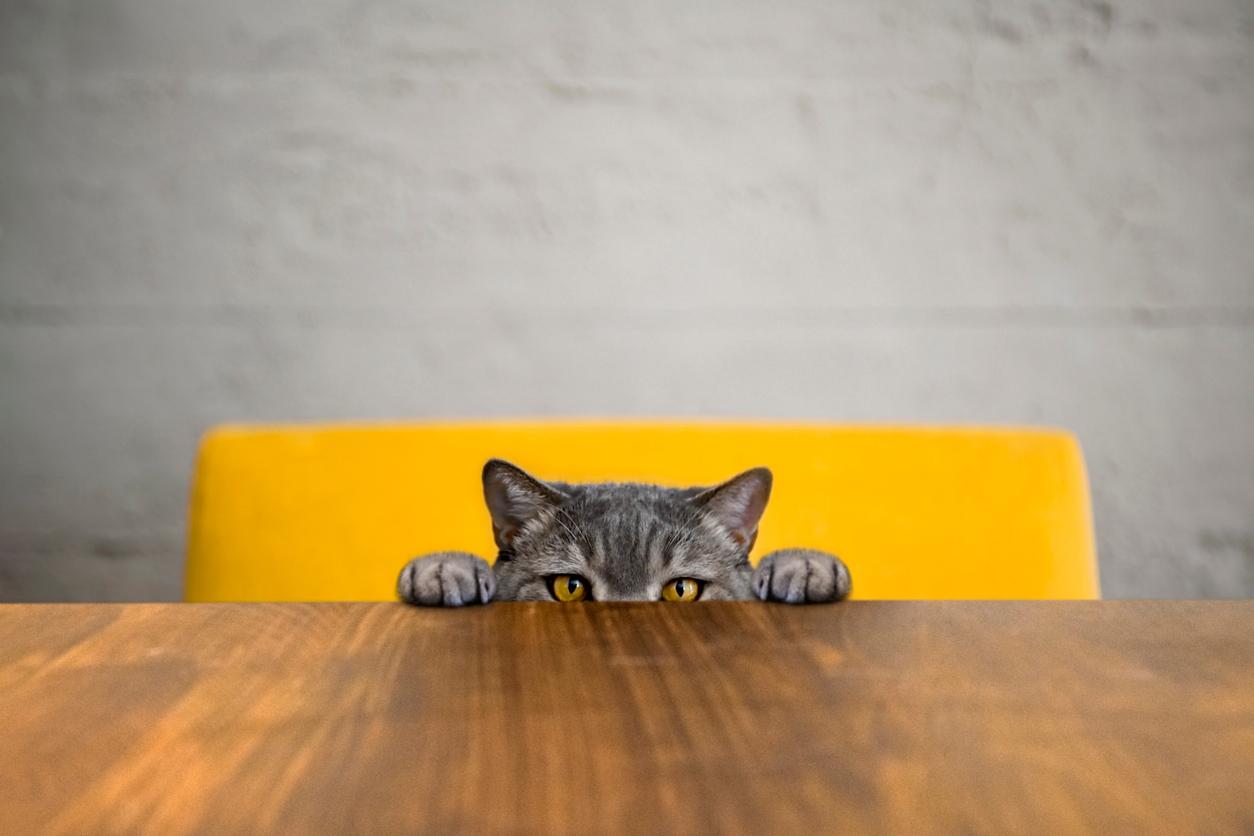If Your Cat Likes to Knock Things Over at Home, Read This
Cats can be savvy, reaching for items on counters if they're lacking proper stimulation.
Published Oct. 7 2024, 3:23 p.m. ET

Stimulation and engagement with your cat is a finicky beast. Too much stimulation and your cat might end up biting you out of nowhere. Not enough stimulation, and you might notice your cat engaging in mischievous behavior, like knocking things off of counters at home.
If your cat is knocking things off the nearest table, is this a cry for help, or simply a fascinating behavior?
If you notice your cat knocking things over excessively, take it as a sign to consult with a veterinarian in conjunction with a credentialed behaviorist to rule out any medical or behavioral concerns.
Let's explore the reasons why your cat may be attracted to knocking everything off the table within paw's reach.
Cats knock things off counters because they are little hunters.

According to the Chicago-based Metropolitan Veterinary Center, knocking things over engages cats' hunting instincts. By reaching for an item on the counter, your cat will learn a few helpful survival cues, such as whether the item moves on its own and can be eaten. Also, per the Chicago vet, your cat may learn if the item can fight back and pose a threat to them.
While the vets acknowledge cats understand an inanimate object isn't a mouse, instincts are hard to override. Cat toys, including stuffed mice and bird toys, can be helpful for curious cats who like to hunt things.
Your cat may knock things over because she wants your attention.

Cat parents can attest: attention is given and sought on a cat's terms, not yours. As Metropolitan Veterinary Center explains, cats may knock things off the table to get your attention and engage with you.
With so many employees working from home, the occasion likely arises throughout the day when your laptop screen receives the attention that your cat wishes were redirected towards her, hence an item swatted off the table.
As the Chicago vets suggest, I found much success baking time into my day to engage with my rescue cats once I began working from home. This helped my cats feel prioritized, even on busy days. You should also ensure your cat's litter box is clean, their water bowl is filled with fresh water, a plate of food is accessible, and stimulating toys are available in every room.
Your curious cat may want to explore the space occupied by an object on a table.

According to The Daily Wag your cat is interested in exploring their space, which includes the object on the table. In this scenario, your cat is less interested in causing chaos and more interested in utilizing their paws to derive sensory information about the world around them, per Wag.
Utilize this as an opportunity to teach your cat about their surroundings and engage their curiosity. It's a great time to reaffirm that they are safe in their environment. You might also want to keep tables and counters clear so your cat can safely navigate the area without the potential of knocking off fragile, valuable items.
Your cat might need more stimulation during their day and they are acting out.

In this scenario, the cat is perenially understimulated and consistently lacking attention and playtime.
Per a PetMD article written by an animal behaviorist, your cat is bored and this behavior might even be reinforced through your actions.
Consulting both a veterinarian and a credentialed behaviorist can help you rule out any health problems that could be causing your cat to act out to get your attention, as well as environmental causes. These trained professionals can help you form a plan and ultimately keep your kitty happy, healthy, safe, and mentally and physically engaged.